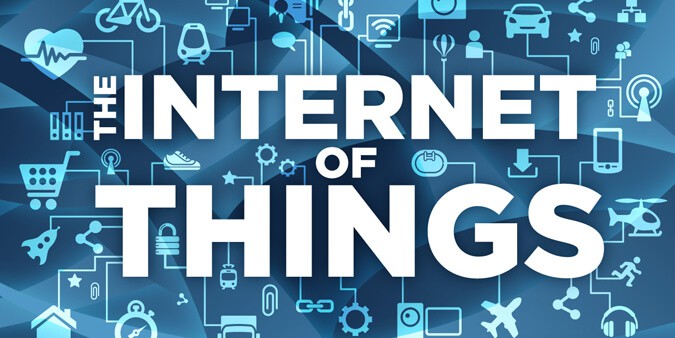
- The U.S. population is rising due to longevity and continued immigration, not high birth rates and immigration as was previously the case. As these aging investors approach end of life planning, their investments are geared more toward income preservation than rapid, higher risk growth. This steady investing helps with any potential medical or emergency needs.
- This longevity also means that new treatments to prolong quality of life are emerging, and emerging medtech companies are often a great investment.
- The potential adoption of universal healthcare or its demise is disrupting the stability of certain healthcare investment models that are no longer as accurate as they once were. Investor research is more important than it has ever been.
What does this mean for investing in the healthcare sector? There are opportunities that have the potential for incredible income growth and even stability over time. At the same time, there are investments once thought to be wise long-term investments that are riskier than they once were. Here are a few of those investment opportunities and cautions broken down.
Techhealth and Big Data
One of the conditions of the Affordable Care Act was the more universal adoption of electronic health records (EHR). The problem with that directive is that many of the EMR systems are poorly designed and difficult to use. Some were even DOS based or tied to older Windows operating systems that were no longer supported.
The old EHR system was also never intended to work on a multi-institutional level or with lifetime medical records. Doctors relied on patients to reveal information from previous records, or they had to be transferred between providers, and data was often left scattered all over when patients moved or switched providers. The answer is new, improved EHR technology.
A big component of this is security, transparency, and mobility. Due to its encryption capabilities and the immutable nature of the shared ledgers, the blockchain is a big part of this discussion. Enter companies like MedRec, who allow patients to give a unique access code to a new provider, giving them access to their encrypted EHR environment.
MedRec is just one of many companies who are engaged in this kind of research, and emerging records companies that are blockchain based are a great investment, especially as these systems meet the strict requirements of continued government regulation changes.
Records are not the only place technology is impacting the healthcare sector. In a broader market where consumers have more choices, reputation management and reviews are huge for medical professionals. Programs that request, capture, and route reviews for healthcare practices and professionals are on the rise, and nearly every medical practice has adopted one of several options.
Investments in these reputation management companies, along with those who specialize in digital marketing for healthcare professionals, are part of the future of opportunities in the healthcare sector that will pay off in the long run.
Biotech and the Internet of Things

One of these is biotech, essentially the merging of biology and natural materials and technology. Essentially this is part of creating sensors that provide real-time data to doctors, but can also do much more. Robotic limbs that respond to the body’s nervous system, wheelchairs that can be more easily controlled through eye movements or other controls, and other amazing assistive “smart devices” are emerging. Ocular and auditory aids are another interesting area of innovation.
The key is to pick these companies carefully based on some common investment strategies. Make sure companies have patents for the things they are developing and watch the trading volume at their initial public offering and beyond. Seek the advice of experts who know how viable what they are working on is and how likely it is to be produced. Look for companies working on devices that have potentially wide applications.
A related area is the internet of things. More people than ever are wearing FitBits, Apple Watches, and other wearable devices that detect their heart rate, can help doctors understand patient sleep patterns, and in the near future will be able to measure blood sugar levels for diabetics. Apple even conducted a heart study in cooperation with Stanford to determine if wearables can help in early detection of heart disease.
What this means to investors is that as smart devices continue to be developed, things like pacemakers that communicate with doctor’s via Wi-Fi or cellular signal. Some connect to the user’s cell phone using Bluetooth and send reports to doctors using those methods. The point is that remote monitoring will soon become the norm, and companies who are engaged with this technology are a great place to invest, especially if you are looking for rapid growth.
These are two areas that will continue to grow in the healthcare arena and offer many investment opportunities.
Income Preservation vs. Rapid Growth
The aging population means that a mix of investments in the healthcare sector is essential. Established companies are doing extensive research into smarter medications and technology that will power the future of the healthcare industry. Divisions of technology giants like Microsoft and Oracle have dedicated teams working on advances in the healthcare sector. These companies have a stable history and consistently trade at increasing values, but lack the rapid growth that startups working in the same field possess. They offer an opportunity for income preservation over extended retirement periods.
Hospital groups and other healthcare conglomerates, including insurances companies are poised on a time of changing roles, narrower profit margins, and renewed risk. For instance, those dental groups who offer affordable dental care to seniors may be favored by Medicare and Medicaid users when their coverage does not include things like optional dental surgeries. Healthcare groups and practices that fail to adopt new technologies or offer affordable options to those lacking full insurance coverage may not fair as well in future markets.
What it comes down to is that these groups are a mixed investment. Some will provide steady, long-term income preservation and fit well into that type of strategy. Others may carry with them more risk, and a careful watch of the market will let investors know where individual groups are headed.
As Gen X and millennials join the investor ranks and take the place of baby boomers, more aggressive rapid growth stocks will become more prominent. Younger investors can afford to take investment risks, and they have proven they will invest in companies they feel a personal connection to and have faith in.
The investment world is made up of theories, not laws, and that is because human investors can, from time to time, make emotionally based decisions instead of fact-based ones that will alter market behaviors. However, using sound investment strategies and research, investment opportunities abound in the healthcare sector.
Trusted & Regulated Stock & CFD Brokers
What we like
- 0% Fees on Stocks
- 5000+ Stocks, ETFs and other Markets
- Accepts Paypal Deposits
Min Deposit
$200
Charge per Trade
Zero Commission on real stocks
64 traders signed up today
Visit Now67% of retail investor accounts lose money when trading CFDs with this provider. You should consider whether you can afford to take the high risk of losing your money.
Available Assets
- Total Number of Stocks & Shares5000+
- US Stocks
- German Stocks
- UK Stocks
- European
- ETF Stocks
- IPO
- Funds
- Bonds
- Options
- Futures
- CFDs
- Crypto
Charge per Trade
- FTSE 100 Zero Commission
- NASDAQ Zero Commission
- DAX Zero Commission
- Facebook Zero Commission
- Alphabet Zero Commission
- Tesla Zero Commission
- Apple Zero Commission
- Microsoft Zero Commission
Deposit Method
- Wire Transfer
- Credit Cards
- Bank Account
- Paypall
- Skrill
- Neteller
What we like
- Sign up today and get $5 free
- Fractals Available
- Paypal Available
Min Deposit
$0
Charge per Trade
$1 to $9 PCM
Visit Now
Investing in financial markets carries risk, you have the potential to lose your total investment.
Available Assets
- Total Number of Shares999
- US Stocks
- German Stocks
- UK Stocks
- European Stocks
- EFTs
- IPOs
- Funds
- Bonds
- Options
- Futures
- CFDs
- Crypto
Charge per Trade
- FTSE 100 $1 - $9 per month
- NASDAQ $1 - $9 per month
- DAX $1 - $9 per month
- Facebook $1 - $9 per month
- Alphabet $1 - $9 per month
- Telsa $1 - $9 per month
- Apple $1 - $9 per month
- Microsoft $1 - $9 per month
Deposit Method
- Wire Transfer
- Credit Cards
- Bank Account


